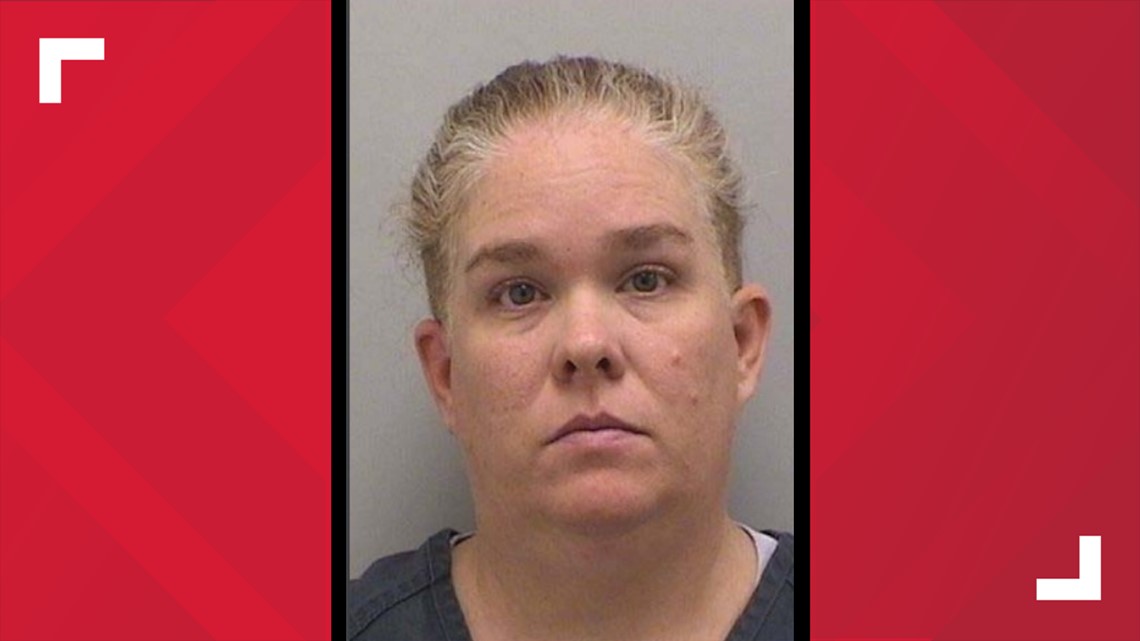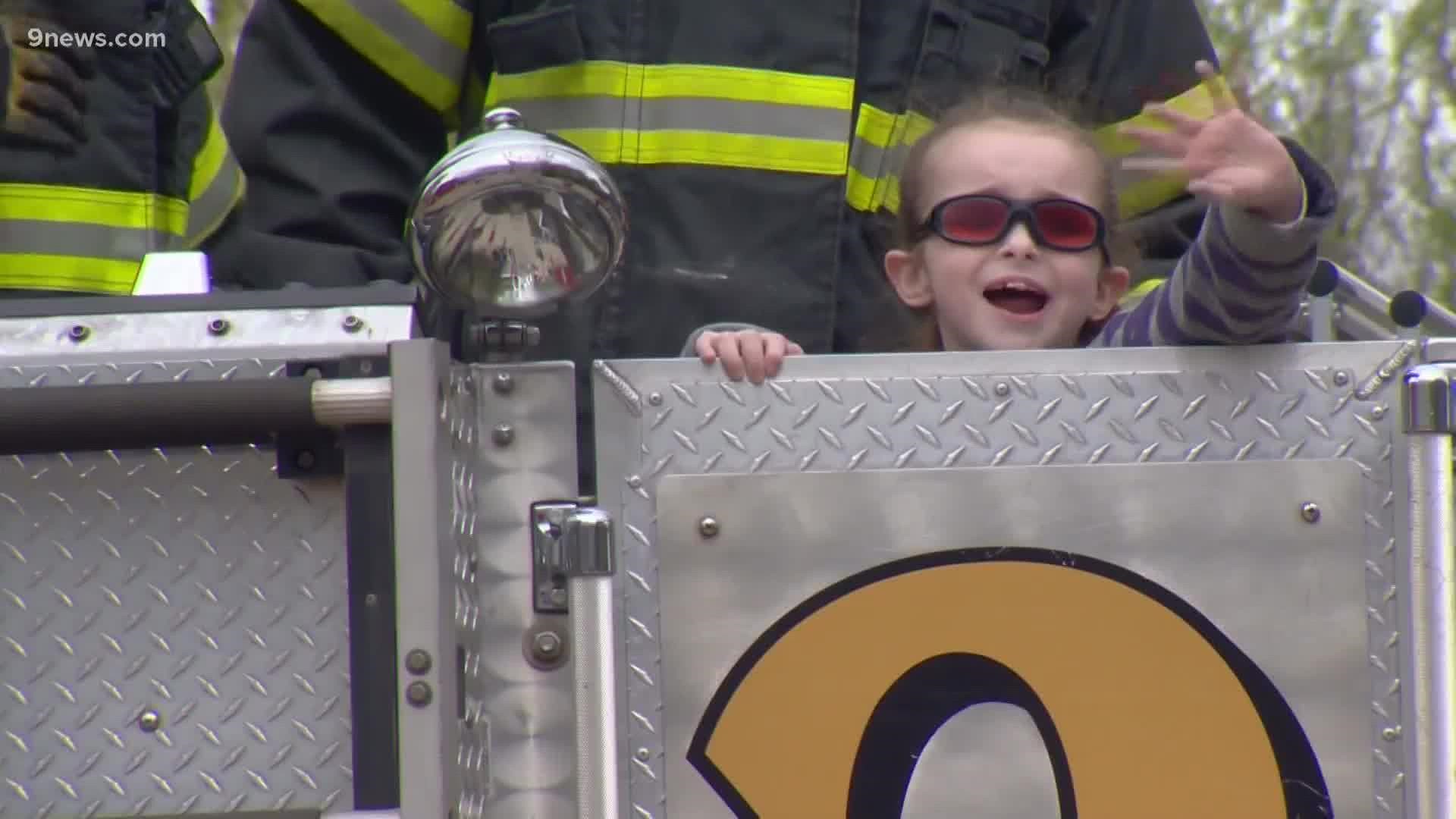DOUGLAS COUNTY, Colo. — A woman accused of murdering her “make-a-wish” daughter in 2017 pleaded guilty Monday afternoon to child abuse causing death as well as charges of theft and charitable fraud.
The move came just weeks before Kelly Turner was scheduled to go on trial in the death of her 7-year-old daughter, Olivia Gant.
The plea agreement calls for a 16-year prison sentence, District Court Judge Patricia Herron said during the hearing.
Turner, 43, was arrested in October 2019. She was charged with:
- Two counts of first-degree murder
- One count of child abuse
- Three counts of theft
- Three counts of charitable fraud
- Two counts of attempting to influence a public official
- Two counts of forgery
Sobbing at times as she appeared over a video link from the Douglas County jail, Turner struggled to compose herself before she said “guilty” to an amended charge of child abuse - negligently causing death. She also pleaded guilty to theft of $100,000 to $1 million and to charitable fraud.
Herron said cases like this one are extremely difficult because they involve a phenomenon commonly known as Munchausen syndrome by proxy or, more recently, “fictitious disorder imposed on another.” In such cases, caregivers – often mothers – subject a child to medical treatment to obtain attention for themselves.
Those cases can include unnecessary medical care – or treatment only necessary because of caregiver infliction of injuries on the child.
“They can be heinous, they can be dangerous, or, as in this case, they can be deadly,” Herron said. “It’s a horrific, depraved condition when left undetected can result in exactly what happened here – the death of the young child.”
Formal sentencing is scheduled for Feb. 9.
The 2017 death of little Olivia was covered extensively – as was her “bucket list” of final wishes that evoked heart-touching news stories. At the time, it was believed she succumbed to multiple diseases.
But according to a grand jury indictment, Turner faked her medical issues and ultimately killed her.
RELATED: A famed hospital, a 7-year-old hospice patient, and the debate that failed to save Olivia Gant
Turner’s attorney, Ara Ohanian, had argued in court that medical professionals – not Turner – determined what treatment “was both reasonable and necessary” for Olivia.
That included a decision to withdraw a feeding tube and to impose a “do not resuscitate” order.
It wasn’t until a year after Olivia’s death that Douglas County sheriff’s investigators began looking into the case, eventually securing a grand jury indictment.
The indictment alleged that Turner defrauded the Medicaid system of more than $538,000, ripped off two foundations that provide memorable experiences to terminally ill children, and scammed hundreds of people who donated to her online fundraising page.
And it further alleged that she stole from both a funeral home and a cemetery that handled the girl’s arrangements.
The investigation began after Turner publicly claimed another daughter, who is now a teenager, had been diagnosed with cancer – something the girl’s medical records show was not true, according to court documents.
Although the indictment did not make clear the specific cause of Olivia’s death, it noted that Turner withdrew medical care and nourishment in the girl’s final weeks.
Olivia’s heart-tugging story played out on television stations and in newspapers in the Denver area and nationally – a sick little girl experiencing the thrill of riding in a police car and shooting water on a fire before succumbing to an untreatable mix of medical issues.
Among those stories were ones that appeared on 9NEWS and other Denver stations, as well as on the nationally syndicated program Entertainment Tonight.
The indictment painted a much more sinister picture: Multiple doctors who didn’t believe Olivia was terminally ill battling a mother who was so persuasive that she convinced one of the physicians to sign a “do not resuscitate” order and ultimately withdrew all of her daughter’s medical care – including what is known as total parenteral nutrition, which provided nourishment through an intravenous line.
At the time, according to the indictment, Turner argued that Olivia was so sick, and her quality of life so poor, that the humane thing to do was to stop medical care and allow her to die.
Olivia died a few weeks later, on Aug. 20, 2017.
Turner denied any wrongdoing when she was questioned by investigators from the Douglas County Sheriff’s Office. But according to the indictment, as Turner was questioned, she mentioned Munchausen syndrome by proxy, a rare psychological disorder.


According to the indictment, “Turner said, ‘That has never been my case, like at all, whatsoever. You can talk to anyone that stood by my side through … all of this.’”
The document noted that it was Turner who raised the subject, which had not been mentioned by either detectives or social workers present for the interview, according to the indictment.
After Olivia died, her cause of death was attributed to intestinal failure.
But after investigators exhumed Olivia’s body in November 2018, a forensic pathologist found no evidence of intestinal failure or “many of the conditions” that Turner claimed Olivia had been diagnosed with, according to the indictment.
Contact 9NEWS reporter Kevin Vaughan with tips about this or any story: kevin.vaughan@9news.com or 303-871-1862.
SUGGESTED VIDEOS: Investigations from 9Wants to Know

